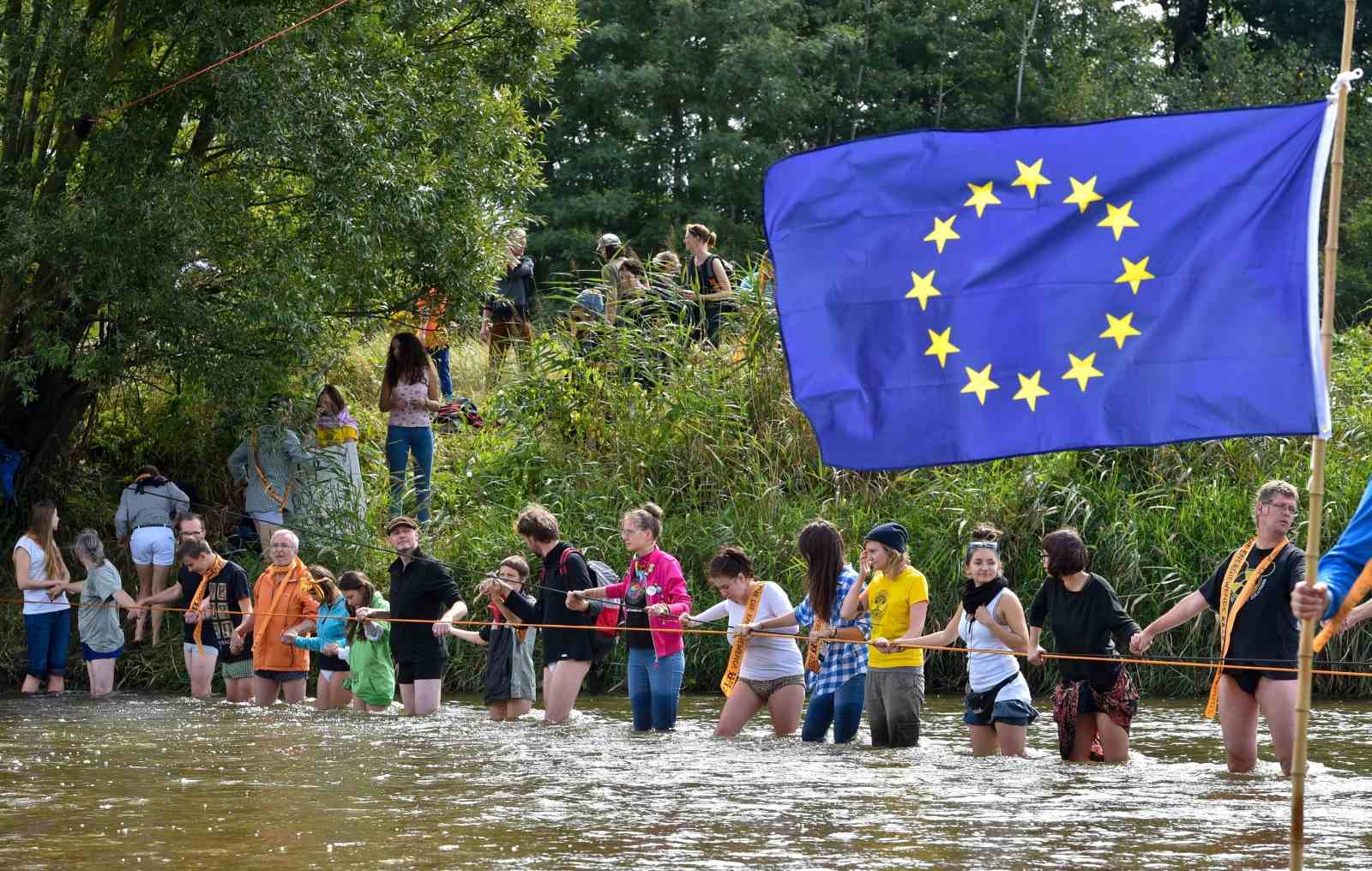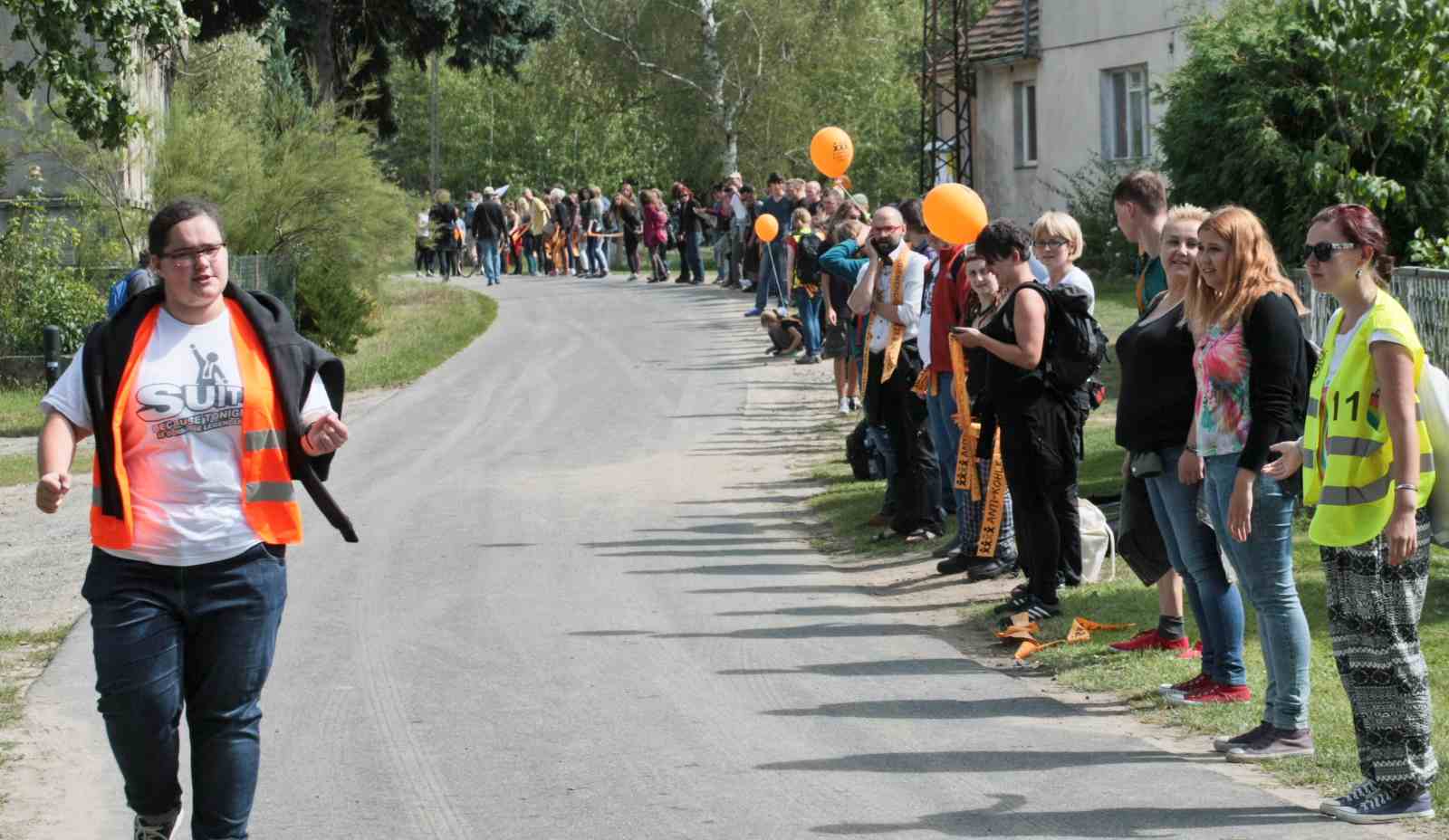Anti-coal human chain crosses Polish-German border
PR dla Zagranicy
Nick Hodge
24.08.2014 09:15
Greenpeace organised a human chain across the Polish-German border on Saturday in protest against plans for open-cast mines.

Coal opponents form a human chain across the Neisse River along the German-Polish border in protest against new strip mines in Gross Gastrose, Germany, 23 August 2014. The human chain streched over a distance of about eight kilometers from Kerkwitz, Germany to Grabice, Poland. Both towns are being threatened by plans by energy companies to open new open-cast mining fields EPA/PATRICK PLEUL
Inhabitants of the Polish village of Grabice and the German village of Kerwitz are fearful that they might be resettled as a result of investments by a group of energy companies, including Polish firm PGE.
About 7500 protesters from 27 countries joined hands in the Greenpeace protest linking the two villages, including Poles from 14 cities.
“The age of coal is over and the era of renewables is here,” claimed Meri Pukarinen, climate and energy unit head at Greenpeace Poland.
“This human chain clearly shows the growing anti-coal movement, not only in Germany and Poland, but in the whole of Europe,” she said.
However, Ryszard Kosciesza, vice chairman of an association promoting development in the region, dismissed the action as counter-productive.
“Such actions only serve to spur on the economic stagnation of our country,” he told the Gazeta Wyborcza daily.

Photo: PAP/Lech Muszynski
Poland, which produces about 90 percent of its electricity at coal-fired plants, has long been under pressure from the EU to reduce its CO2 emissions, which are 50 percent above the European average.
The country is currently attempting to broaden it's energy portfolio through investment in shale exploration and an LNG import terminal, but Prime Minister Donald Tusk has repeatedly said that Poland will not abandon coal, stressing that it is a crucial part of the country's energy mix. (nh)
Source: PAP/rtcc.org